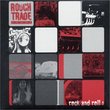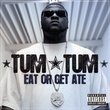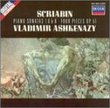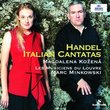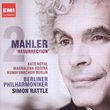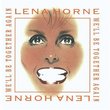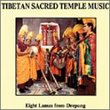| All Artists: Sviatoslav Richter Title: Icon (14 CDs) Members Wishing: 0 Total Copies: 0 Label: EMI Classics Original Release Date: 1/1/2008 Re-Release Date: 10/28/2008 Album Type: Box set Genres: Pop, Classical Styles: Vocal Pop, Chamber Music, Forms & Genres, Concertos, Fantasies, Sonatas, Suites, Historical Periods, Classical (c.1770-1830) Number of Discs: 14 SwapaCD Credits: 14 UPCs: 400000011882, 5099921741128 |
Search - Sviatoslav Richter :: Icon (14 CDs)
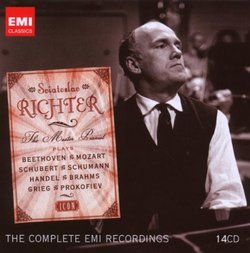 | Sviatoslav Richter Icon (14 CDs) Genres: Pop, Classical
Sviatoslav Richter was born in 1915 and died in August 1997. He was a Soviet pianist, widely recognized as one of the greatest pianists of the 20th century, known for the depth of his interpretations, virtuoso technique, a... more » |
Larger Image |
CD DetailsSynopsis
Album Description Sviatoslav Richter was born in 1915 and died in August 1997. He was a Soviet pianist, widely recognized as one of the greatest pianists of the 20th century, known for the depth of his interpretations, virtuoso technique, and extensive repertoire. These 14 CDs showcase that remarkable variety, including works ranging from Handel and Bach to Szymanowski, Berg, Webern, Stravinsky, Bartók, Hindemith, Britten, and Gershwin. Similar CDs
Similarly Requested CDs
|
CD ReviewsRichter's complete EMI recordings Y.P. | Mount Messiaen, Utah | 10/31/2008 (5 out of 5 stars) "This 14 CD set contains all Sviatoslav Richter's recordings for EMI. For any Richter fan, this is self-recommending. You may wish to skip to the last paragraph for buying suggestion and check out the track listing at the end. For the new-comers, if you have never listened to Richter, you are missing one greatest genius in the history of piano performance. Richter could be mercurial, intellectual, inspired, and profound at the same time. He is a great experimenter, and does not like playing the same piece exactly the same way. When he is in form, as he is usually, he is one of the most dazzling technicians in the recording history. [Fischer-Dieskau: ... fearsome difficult passage was like child's play to him. (my paraphrase)] However, what makes him so special is that his performance carries such level of intensity that I have never found in any other pianists. Just listen to his Schumann, Schubert, and Beethoven (in fact just about anything collected here), you will get a sense what I am trying to convey. Richter was born in 1915 and died in August 1997. He was essentially self-taught until he was admitted to Moscow Conservatory to study with Heinrich Neuhaus. By that time, he had the piano reduction of the entire Wagner's oeuvres memorized. Although Neuhaus taught many great pianists, including Emil Gilels and Radu Lupu, Richter was clearly his favorite "genius pupil". While Neuhaus acknowledges that he taught Richter almost "nothing", Richter claims the Neuhaus "freed" his fingers. Richter enjoyed performing in front of an audience, but he hated planning concerts years in advance, and in later years he almost exclusively played at very short notice in small halls, as the big venues have to booked years in advance. That created further mystery around him. Richter has a striking photographic memory. His huge repertoire ranged from Bach and Handel to Berg and Prokofiev. Most composers central to his repertoire are represented here. If you like this set I'd strongly recommend the DVD Richter: The Enigma (if you have a multi-region DVD player), and 11 volumes of 2CD sets Richter the Master (only Volume I is linked.) For further exploration, try his Chopin Scherzos (1977) and Bach: Well-Tempered Clavier, both have my top recommendation. The recorded sound of this collection varies. Some are quite good, and some less so. Apparently, EMI does not bother to remaster the old recordings before the new release. Buying tips: Be sure to compare the price at Amazon's UK site. It is currently priced at less than $50 USD including shipping to the U.S.. What a bargain! (I bought this set even though I already have more than half of this collection.) And it was released in Europe weeks ahead, that's how I got it before Amazon's release date. Most highly recommended. "The rhythm in Richter's performances makes one feel that the whole work lies before him like an immense landscape, revealed to the eye at a single glance" -- Heinrich Neuhaus -------------------------- Content listing CD 1 Beethoven: Piano Sonata No.1 in F minor, Op.2 No.1 Piano Sonata No.7 in D, Op.10 No.3 Piano Sonata No.17 in D minor, Op.31 No.2 'Tempest' Andante favori in F, WoO.57 CD 2 Schubert: Piano Sonata in A, D.664 Fantasy in C, D.760 'Wanderer' (revised Badura-Skoda) Schumann: Fantasy in C, Op.17 CD 3 Schumann: Papillons, Op.2 Piano Sonata No.2 in G minor, Op.22 Faschingsswank aus Wien, Op.26 CD 4 Beethoven: Violin Sonata No.5 in F, Op.24 'Spring' with Oleg Kagan Schubert: Piano Quintet in A, D.667 'Trout' with Borodin Quartet, Georg Hörtnagel CD 5 Mozart: Violin Sonata in D, K.306 Violin Sonata in B flat, K.378 Andante & Allegretto in C, K.404/385d Violin Sonata in B flat, K.372 'Unfinished' with Oleg Kagan CD 6 Handel: Keyboard Suite No.2 in F Keyboard Suite No.3 in D minor Keyboard Suite No.5 in E Keyboard Suite No.8 in F minor CD 7 Handel: Keyboard Suite No.9 in G minor Keyboard Suite No.12 in E minor Keyboard Suite No.14 in G Keyboard Suite No.16 in G minor CD 8 Brahms: 15 Romanzen aus 'Die schöne Magalone', Op.33 with Dietrich Fischer Dieskau CD 9 Mozart: Piano Concerto No.22 in E flat, K.482 Beethoven: Piano Concerto No.3 in C minor, Op.37 with Philharmonia Orchestra, Riccardo Muti CD 10 Beethoven: Triple Concerto, in C, Op.56 with David Oistrakh, Mstislav Rostropovich Berliner Philharmoniker, Herbert von Karajan Violin Sonata No.4 in A minor, Op.23 with Oleg Kagan CD 11 Brahms: Piano Concerto No.2 in B flat, Op.83 with Orchestre de Paris, Lorin Maazel Mozart: Violin Sonata in G, K.379 with Oleg Kagan CD 12 Dvorák: Piano Concerto in G minor, Op.33 with Bayerische Staatsorchester München, Carlos Kleiber Bartók: Piano Concerto No.2, Sz.83 with Orchestre de Paris, Lorin Maazel CD 13 Grieg: Piano Concerto in A minor, Op.16 Schumann: Piano Concerto in A minor, Op.54 with Orchestre National de l'Opéra de Monte-Carlo, Lovro von Matacic CD 14 Prokofiev: Piano Concerto No 5 in G, Op.55 with London Symphony Orchestra, Lorin Maazel Berg: Kammerkonzert with Oleg Kagan Instrumental Ensemble of the Moscow Conservatoire, Youri Nicolaievsky" A Worthwhile Anthology -- But Not the Best of Richter Johannes Climacus | Beverly, Massachusetts | 02/03/2009 (4 out of 5 stars) "EMI continues their valuable Icon series with this this anthology containing all of Sviatoslav Richter's EMI recordings. Though one of the very greatest pianists of the Twentieth Century, Richter shunned the limelight. His public recitals were notorious for being scheduled erratically, and in out-of-the-way venues. Like Clifford Curzon, he also abhorred the recording studio. The fact that many of the recordings anthologized here were made in the studio may account for my impression that this is not indeed the best of Richter. Freer and more cogent renditions by the pianist of this repertoire can be found in various live performances on other labels. Those performances may display occasional lapses of concentration or memory; they may also be recorded in inferior sound. But Richter's genius cannot be fully appreciated apart from hearing them. That caveat aside, there is still much to enjoy in this collection, not least a number of live performances which show the pianist at his most spontaneously combustible. I was particularly taken with the Mozart and Beethoven violin sonatas highlighting Richter's longstanding collaboration with Oleg Kagan, a sadly underappreciated artist. These are vital, bracing performances that take Mozart out of the drawing room and relish the brinksmanship Beethoven demands of his players. The Handel suites, recorded live in somewhat cramped sound at the Tours festival in France, are also treasurable, if only because the represent an opportunity for hearing this great pianist in relatively rare repertoire. His renditions are predictably elegant, while also conveying a remarkable inwardness in the sarabandes and more melancholy movements. Among the studio recordings, I was enthralled by the Schumann Fantasy in C and charmed by the Schubert A-major sonata (though more exciting renditions of both may be found among Richter's many live recordings). The Beethoven sonatas are certainly worth having, even if the interpretations are relatively sober. The same could be said for the Beethoven c-minor Concerto and Mozart E-flat Concerto with Muti, as well as the Schubert "Wanderer" Fantasy. The latter is often regarded as a benchmark recording, but I prefer almost any of Richter's live renditions of this work available on other labels. The other concerto recordings are also of variable interest. The Brahms Second with the somewhat strait-laced Maazel, suffers by comparison with Richter's incendiary 1960 account with Leinsdorf and the Chicago Symphony (RCA; one of the truly great recordings of this work)--though one is still awed by the pianist's formidable virtuosity. The Grieg and Schumann are enlivened by Matacic's incisive conducting (of a less than world-class orchestra), and find Richter in a mellow, introspective mood. The pianist finds a vein of majesty in the Grieg often missing in other performances, though I found the Schumann wanting in playfulness and a sense of fantasy. The Dvorák concerto, on the other hand, is a complete success, thanks to Carlos Kleiber's affectionate and deeply considered direction and Richter's decision to play Dvorák's original score rather than Efrem Kurz's supposedly "more pianistic" reconstruction. The Bartók Second, Prokofiev Fifth, and Berg Kammerkonzert are also valuable additions to the pianist's discography, since they provide opportunities to hear Richter in "modernistic" repertoire of which he was a champion throughout his career. Again, one is struck by the seriousness of Richter's interpretive stance; some listeners might welcome a lighter touch, particularly in the Bartók. Perhaps, too, it is Maazel's doggedly literalistic direction that weighs down the Prokofiev and Bartók. One of the very finest items in this collection is the Brahms "Magalone" Romanzen with Fischer-Dieskau. Rarely on record has this sprawling, and somewhat ponderous, cycle sprung to life more vividly, thanks to both artists' ability to sustain a sense of long-term narrative. Predictably, EMI have omitted texts and translations from their rather skimpy booklet, though one can readily find these online. Another delight is the bracing and deeply expressive account of the Schubert "Trout" quintet with the Borodins and Georg Hortnagel. Here I actually prefer the unusually serious approach these artists take to a work that is often condescendingly treated as bubble-headed salon music. Finally, a word about sound quality. As other critics have observed, EMI's sonics vary from richly textured and finely detailed to opaque and poorly balanced. In some of the concertos (including, regrettably, the Dvorák), the piano is unduly recessed, so that the impact of Richter's brilliant playing is reduced. Elsewhere (in the Handel principally, but also in the Beethoven and Schumann solo works) the piano tone can harden at higher dynamic levels. At their best, however, the EMI engineers have managed to capture the deep resonance and subtle coloration of Ricther's unique tone. How, then, to evaluate this massive collection? Regrettably, on the basis of the foregoing considerations I am constrained to give this a qualified recommendation. The Handel, the Dvorak, and the Brahms *Magelone* are invaluable additions to the Richter discography, and a good case could be made for including the Bartok, Prokofiev and Berg in this category. One welcomes the inclusion of the live recordings with Kagan as well, despite somewhat harsh sonics. The Beethoven, Schubert and Schumann are mostly superb, but then one can find more involving live renditions of the same repertoire--despite occasional flaws--on other labels (every Richter fan should check out the "Richter live from Kiev" series). If you are a Richter enthusiast, this modestly-priced box certainly beckons; on the other hand, if you have not yet encountered his artistry, or are looking for a "basic library edition," I would look elsewhere. Brilliant has come up with an outstanding bargain-box anthology of Richter's Beethoven, Liszt and Schubert in live performances from the "Russian Archives." DG and RCA have issued invaluable two-CD packs including some of the pianist's very finest solo recital material. Decca/Universal have recently reissued in single-CD increments the "Authorized" collection once available on the Phillips label. That series contains some of Richter's very best outings in his favored repertoire (check out the Haydn sonatas--no finer renditions exist of this composer's piano music). If it comes down to a single CD with which to start a Richter collection, I would choose his famous recording of the Brahms Second concerto with Leinsdorf on RCA. After nearly fifty years, that recording never ceases to astonish for its formidable virtuosity and brilliant insight into a work you may think you know all too well. Addendum: An outstanding 14-CD collection of "Richter in Hungary" has recently been released (May, 2010) by Hungarian radio archives. The contents derive from live broadcast performances from 1954 through 1991, and the sonics, though variable, are mostly good. The repertoire is remarkably broad (though Bach, Beethoven, Schubert, Debussy and Rachmaninov predominate--no surprise), while including some works new to the Richter discography (a large swath of Grieg "Lyric Pieces," for instance). The playing is phenomenal in its technical virtuosity, emotional intensity, and structural cogency. In short, this collection represents Richter at something like his best (astonishingly few slips and memory lapses). Admirers of the pianist should not hesitate (Google "Richter in Hungary" for price comparisons)." Richter is supreme, but there are things to think about Santa Fe Listener | Santa Fe, NM USA | 11/18/2008 (5 out of 5 stars) "The previous reviewer has given a creditable version of the standard high recommendation for Richter, and yet as great as Richter undoubtedly was -- he had no equal in the last century except Rachmaninov -- there are some things to consider before jumping into a 14-CD box set. I'd like to offer a few incidental points, not a complete review.
Richter was the most original, imaginative Beethoven interpreter that I know of, but EMI's handful of sontas doesn't do his reputation full justice. One has to search through his multitude of live performances to get the real magic. I'd start with Music and Arts' collection of sonatas played in concert over a long span, and also BBC Legends' various CDs of recitals Richter gave on tour in London, many of which contain at least one Beethoven sonata, a few Bagatelles, or set of variations. EMI's Schubert and Schumann selections are closer to first-rate Richter, but again there are a number of live readings that are better. I'd look to Praga's massive collleciton of Richter's recitals regularly given at the Prague Festival over the years, along with various small independent labels. (Olympia's out-of-print catalog duplicates Praga's, I believe -- used copies are readily found at Amazon Marketplace.) As for the various concertos with Maazel, they've also been gathered in a bargain two-fer by EMI and are very much worth having. The Brahms Second, however, isn't a match for Richter's famous account with Leinsdorf and the Chicago Sym. on RCA. The Grieg and Schumann concertos with von Matacic, especially the Grieg, are not to be missed. The Handel keyboard suites are aggressively played and recorded in hard, ugly sound. Although they are famous, I can listen to about half of one at a time, if at all. The unsuspecting should know that these suites are for two keyboards; Richter's equally fierce partner is Andrei Gavrilov. Another favorite partner was the violinist Oleg Kagan, who died young. They made many recordings together that can be found on independent labels -- the peformances here are a small but inspiring sample. The Schubert "Trout" Quintet with the Borodins is lovely but at times eccentric; it's been hard to find in he U.S. until now. Finally, we get a great partnership with Fischer-Dieskau singing Brahms's unfamiliar song cycle 'Die Schone Magelone,' but I doubt that casual listeners will make it rhough the entire recital -- none of these are among Brahms's greatest lieder. I hope this helps to put EMI's big box set into perspective. Richter was an indispensable artist, and those of us who cherish him are willing to hunt and peck through literally hundreds of scattered live recordings. That's the best way to get to know a pianist who shunned the recording studio and in general was suspicious of the decadent capitalist West. If you don't want to go on an extended safari, this release is an automatic recommendation, much to be preferred over the aging Richter heard on Philips' "Ricther the Master" series. " |

 Track Listings (12) - Disc #1
Track Listings (12) - Disc #1